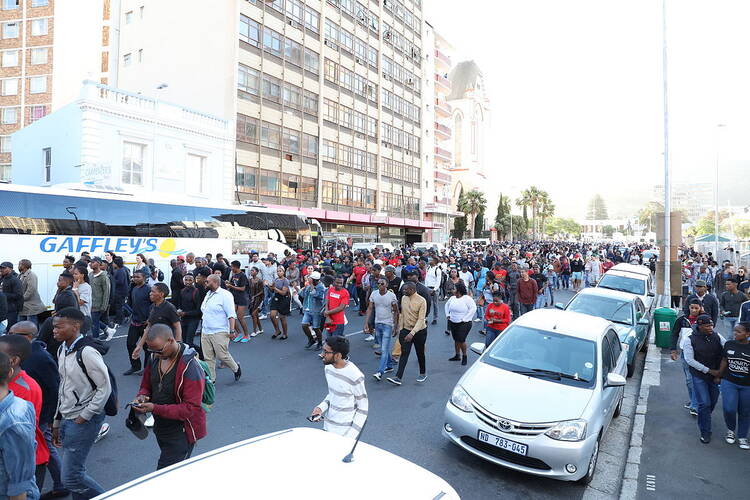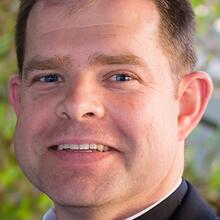Last year did not end well for South Africa. Unfortunately, 2016 did not start well either.
In December, South African President Jacob Zuma, sacked the country’s finance minister, Nhlanhla Nene. Nene opposed some of Zuma’s friends, like Dudu Myeni, who is the CEO of South African Airways (SAA). Myeni has steadily steered the national carrier towards a mountain of debt.
The final straw for Nene was when Myeni tried to overturn a R9-billion deal with Airbus that the treasury had checked and approved. He stepped into the mess last year when Myeni openly defied the minister of public enterprise. Myeni is close to Zuma. It is widely believed that Zuma fired the minister of finance to protect her. He then appointed David Van Rooyen—a man with no experience in finance and who already had a checkered political career, mostly in local government. More important for Zuma was that Van Rooyen was loyal to him—he would endorse Zuma’s decisions, however poorly thought out or financially dodgy.
The local currency plummeted when news of Nene’s sacking broke. Markets lost value. South Africans reacted by calling for Zuma’s axing and the “#ZumaMustFall” hashtag flooded social media. Three days later Zuma was, allegedly, called in by the top brass of the ruling African National Congress (ANC) and told to change his decision. He then announced the appointment of another finance minister, Pravin Gordhan, who had been the minister before Nene. Gordhan’s appointment brought some stability but the damage to the currency—and investor confidence—was done.
President Zuma had, prior to this, told the country that the ANC was more important to him than the country. His actions showed the country, once again, where his priorities lie: the personal interest of Jacob Zuma himself.
No sooner was the country over this ordeal, and just a few days into the New Year. Penny Sparrow, a retired realtor, referred to black people as “monkeys” on social media. Her bigoted comments led to a rhetorical race war. This was, to say the least, depressing to watch. The country seemed more broken and divided than it had ever been in its post-apartheid history. Anger and hate spewed forth, day after day, on any form of social media that could be accessed.
These events, coupled with student protests for free education when universities re-opened for the new academic year, the International Monetary Fund downgrading South Africa’s economic growth from 1.3 percent to 0.7 percent, an unemployment rate of almost 30 percent which will be compounded this year, the widespread corruption in government and the corporate sector, don’t make for a happy start to 2016.
To make the situation even more volatile, this year is also an election year. South Africans will go to the polls to vote for local government positions. It will undoubtedly be a test of confidence in the ruling ANC and an indicator for the party of public confidence. This means that politicians will grab at anything they can to manipulate people. Apart from some players blurring government and party roles in social welfare provision (a trick in the past), many have already jumped on the bandwagon and used the recent Internet race war to further their agendas.
Jacob Zuma is blamed for many of South Africa’s current ills. Though he has a lot to answer for, he is a symptom rather than a cause. The biggest problem that South Africa faces is that a persisting leadership vacuum. Because of this, everyone who would have some influence simply chooses to remain mute when Zuma uses the country and its people like pawns on his chessboard. Even worse, some defend him. Ministers in government say nothing; senior ANC officials say nothing; people in big business complain around dinner tables about what he does but say nothing too. Opposition parties exploit the gaps that are created by this vacuum for their own gain. Even the faith community, I am sad to say, has—for the most part—said nothing.
Speaking in Kenya in November, Pope Francis said, “In the work of building a sound democratic order, strengthening cohesion and integration, tolerance and respect for others, the pursuit of the common good must be a primary goal.” Good leadership focuses on and pursues this common good. We simply do not have this kind of leadership in contemporary South Africa.
In pre-1994 South Africa, there were many courageous voices from within the faith community. They constantly called attention to the common good. Some risked their lives to do so. We no longer have religious leaders who will take this risk; they too have fallen silent. Just before Christmas Zuma met with the South African Council of Churches (SACC). Nothing much came of that meeting. Zuma, again, was let off the hook and not called to account for his reckless decision to fire Nene.
The country of Nelson Mandela, just 20 years ago, had a bright future. Nation-building, transforming lives, poverty alleviation and economic growth were the buzzwords. People were important. Sadly, that is no longer the case.
Unless some real leaders step up to the plate, 2016 will end as it started: badly.
Russell Pollitt, S.J.,is currently director of the Jesuit Institute South Africa and a Johannesburg correspondent for America.








